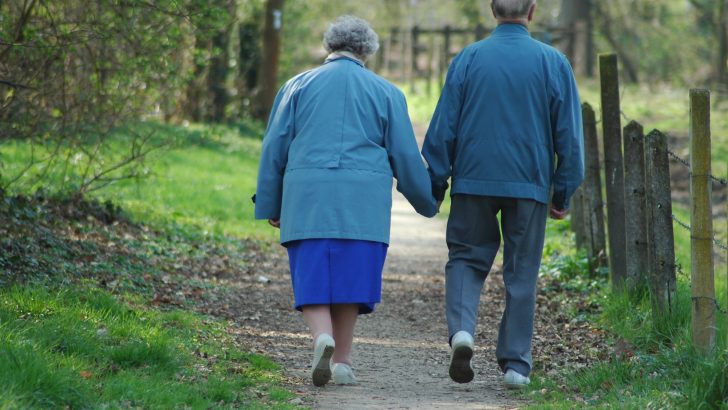Science of Life
We all take the same journey through life – we are born, we grow old and we die. Today I will talk about the ageing process particularly from the 50s onwards, why our bodies dis-improve physically as we age and what to expect in old age.
Average life expectancy is rising. In 1960 life expectancy in Ireland was 69.7 years, 71 years (1970), 72.5 years (1980), 74.7 years (1990), 76.5 years (2000), 80.7 years (2010) and 81.5 years in 2015 (83.4 years females and 78.6 years males). Average life expectancy worldwide is 71.5 years.
The record for the oldest person who ever lived is held by Frenchwoman Jeanne Calment who died in 1997 aged 122 years, 164 days. The WHO ranks Japan number one in the world for life expectancy (83.7 years). Sierra Leone is at the bottom of the table with an average life expectancy of 50.1 years.
Muscle mass
Skeletal muscle (the type of muscle you can voluntarily contract) contributes close to 40% of body mass in men and 30% in women. You lose muscle mass as you age and after the age of 30 you can lose as much as 3% to 5% per decade. Most men lose up to 30% of muscle mass during their lifetimes.
Loss of muscle causes weakness and restricts mobility leaving you more vulnerable to falls and fractures in hips, collarbones, legs and arms. But the good news is that serious muscle loss can be prevented by doing resistance training – basically lifting weights.
Muscle has good regenerative capacity but many organs and tissues do not and gradually decline in efficiency as you age beyond your 30s. People will notice a delay in recovering from illness when they enter their 50s. General susceptibility to disease increases as you age and it is very important for people in their 60s to get anti-flu and anti-pneumonia vaccination because these conditions can prove fatal.
A slight cognitive deterioration may begin in the 50s and in the 60s many people will notice some slowdown in ability to retrieve information. From around 65 years of age the odds of suffering some form of dementia doubles every five years.
Reaching the 60th birthday can cause emotional trauma. Many people see this birthday as the gateway to “old age”, when they leave their youth and active productive years behind. This can induce reflection on life achievements to date, often precipitating regrets over missed opportunities.
Gerontologists at Cornell University interviewed 1,500 people over 65 about life choices they most regret. Some bigger regrets were – (A) not having been careful enough when choosing a life partner, (B) not resolving a family estrangement, (C) putting off saying how you feel, (D) spending too much time worrying, (E) not taking care of your body. Some regret over certain life decisions is normal and will pass off. Good social interactions will greatly help here.
Most people in their 70s are retired from work and must decide what to do with their time that will allow them to live meaningful lives. Chronic conditions such as hypertension, diabetes and often dementia loom larger in your 70s. Muscle and bone loss speed up causing some loss of height, weight and strength towards the end of the 70s. Mobility declines and hip, knee and feet issues tend to arise. About 50% of men 75 years and older, and 40% of women, experience some hearing loss.
Fear of falling looms large in your 80s – 40% of over-65s fall at least once a year. People in their 80s will likely spend some time in hospital, often for procedures such as hip replacements. Where feasible it is best to have such operations carried out earlier because it takes longer to recover from surgery in your 80s.
By 90 years of age people have a one-in-three chance of showing signs of dementia. The best preventive therapy here is 150 minutes of physical activity per week, e.g. brisk walking.
Why do we age? The basic building blocks in our bodies are cells. Cells divide, producing new cells necessary for growth and tissue repair. But human cells can only divide so many times before they enter a state called senescence when they can divide no longer. They either die then or remain as malfunctioning cells.
Each cell contains the human genetic material that controls cell division. The information in genetic material is encoded in the DNA molecule and the DNA is organized into structures called chromosomes. Each time a cell divides into two daughter cells, the chromosomes replicate themselves and each daughter receives a copy of the chromosomes.
Both ends of a chromosome are capped by structures called telomeres. The telomeres protect the chromosome like the plastic tubes at the ends of your shoelace prevent the shoelace from unravelling. But every time chromosomes divide the telomeres shorten. We have long telomeres at birth but as cells divide they gradually shorten until finally the chromosomes start to unravel. And this is why we age.
We cannot stop the ageing process but we can slow it down by slowing down telomere shortening. Research indicates that psychological stress speeds up telomere shortening. A certain amount of stress is normal and probably good for us but chronic stress is definitely bad. Social support groups are good at helping to alleviate stress. Regular aerobic exercise is also helpful, as is meditation.
A good diet also slows down telomere shortening. Some of the populations with the longest lifespans live on the Mediterranean coast and eat a diet rich in fruit, vegetables, olive oil, beans and fish, all washed down with a glass of wine. This diet is rich in antioxidants that combat ageing.
So, stay active and fully involved with life, avoid stress, cultivate your friends and other social contacts, eat well and exercise. And don’t fret that you will feel sad when you grow old – most elderly people report themselves more satisfied with life than younger people.
William Reville is an Emeritus Professor of Biochemistry at UCC.


 William Reville
William Reville